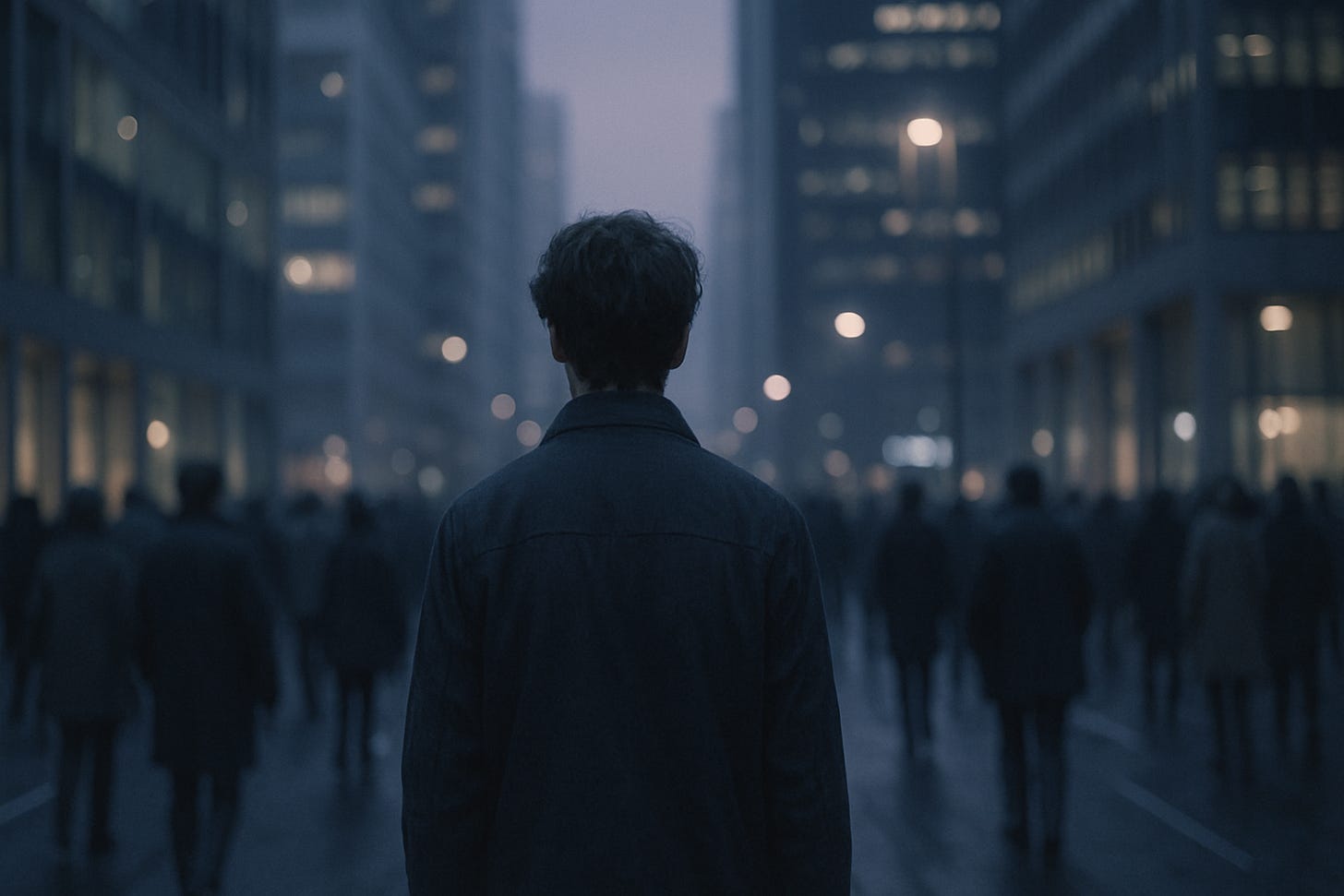Our Death-Phobic Culture Is Hurting Us
How denying death keeps us disconnected, unprepared, and deeply afraid of what we can’t avoid.
Let’s name it:
We live in a culture that is deeply uncomfortable with death.
We avoid the word.
We mask the process.
We sanitize it, euphemize it, and tuck it out of sight like something shameful.
When death happens, we call it “losing someone.” We say they “passed away,” “moved on,” or “went to a better place.” We whisper condolences and change the subject. We give people three bereavement days and expect them to bounce back as if nothing happened. And when someone brings up their own mortality in conversation, we awkwardly say things like, “Don’t talk like that!”
But here’s the thing: talking about death doesn’t kill us.
Pretending it doesn’t exist? That just leaves us unprepared, unanchored, and often completely undone when it inevitably arrives.
If you’re ready to have these honest, necessary conversations, subscribe to Bone & Bloom. It’s where we talk about the things most people won’t.
We Are Death-Avoidant by Design
In Western, especially American, society, death has been made invisible. We’ve designed our systems to hide it.
Most people die in hospitals or care facilities, not in their homes.
The dying process is medicalized, monitored, and managed, rarely witnessed as a natural event.
We outsource after-death care to professionals, often without understanding what that care entails.
We no longer pass down the rituals, stories, or wisdom of dying within families or communities.
Death has become the domain of the “experts.” And while some of that comes from good intentions, like reducing suffering, it’s also created a system where the average person is completely detached from what death looks like, how to prepare for it, or even how to talk about it.
This detachment isolates us.
The Cost of Denial
When we pretend death isn’t coming, we lose more than just information. We lose connection. We lose meaning. We lose the opportunity to shape our final chapter with clarity and intention.
Here are just a few ways our death-denying culture is quietly hurting us:
It robs us of meaningful rituals. When funerals become 20-minute services followed by a buffet and a quick return to work, we miss the chance to honor grief as a sacred, transformative process.
It leaves loved ones unprepared. Without conversations about wishes, values, or advance directives, family members are forced to make painful decisions in the middle of crisis—often with guilt, confusion, or conflict.
It medicalizes what is, at its core, a human event. We’re told how to extend life, but not how to hold death. We’re given charts and medications, but not presence, not permission, not grace.
It creates a culture of fear. When we don’t talk about death, we make it taboo. And when something becomes taboo, it also becomes lonely, shameful, and hard to ask questions about.
And maybe most heartbreakingly of all:
It teaches us to fear aging, imperfection, and even grief itself. Because if we can’t face the ending, we start to resent everything that reminds us we’re getting closer to it.
If this resonates with you, please share it with someone you love. Let’s make this conversation a little less rare.
The Illusion of Control
One of the reasons we avoid death is that we can’t control it. And we don’t like that.
We live in a time where we can customize everything: our coffee orders, our phone backgrounds, our social media personas. We track our steps, our sleep cycles, our productivity. We manifest. We optimize. We try so damn hard to keep the messiness out.
But death isn’t tidy.
It doesn’t ask for permission.
It interrupts. It rewrites. It rearranges.
And if we haven’t made peace with that fact, then death will always feel like a failure.
Like we didn’t try hard enough to prevent it. Like we did something wrong.
We haven’t been taught that death is not a failure of living. It’s the completion of it.
What We Could Learn from Death-Literate Cultures
Not all cultures avoid death. Many have long-standing traditions that honor it.
In parts of Mexico, Día de los Muertos celebrates the continued presence of ancestors. In some Indigenous communities, death is seen as part of the sacred life cycle, and rituals are passed down through generations. In Tibetan Buddhism, practitioners meditate on impermanence and the dying process regularly, not to dwell on darkness, but to cultivate clarity and compassion.
In these cultures, it is integrated rather than hidden.
The dead are not erased; they are remembered.
The dying are not pushed aside; they are accompanied.
Grief isn’t rushed or pathologized; it is held in community.
We could learn a lot from that.
The Case for Unflinching Honesty
So what do we do in a world that keeps telling us not to talk about death?
We do it anyway.
We name it.
We bring it back into our conversations, our planning, our families, our rituals.
We tell our children the truth in age-appropriate ways.
We talk to our friends about our end-of-life wishes.
We stop apologizing for our grief.
We learn to hold space for loss without turning away.
Because when we break the silence, we reclaim our power.
Not over death, but over how we meet it.
Love today,
Heather 🌸
This Week’s Reflection
Spend a little time this week noticing how you relate to death. And how the people around you do.
What messages did you grow up hearing (or not hearing) about death?
Were you included in funerals or memorials as a child?
Do you talk about death in your household, or does it feel off-limits?
What fears come up when you think about dying, or someone you love dying?
And most importantly:
What would it mean to unlearn the silence?
Comment below or hit reply to join the conversation!


